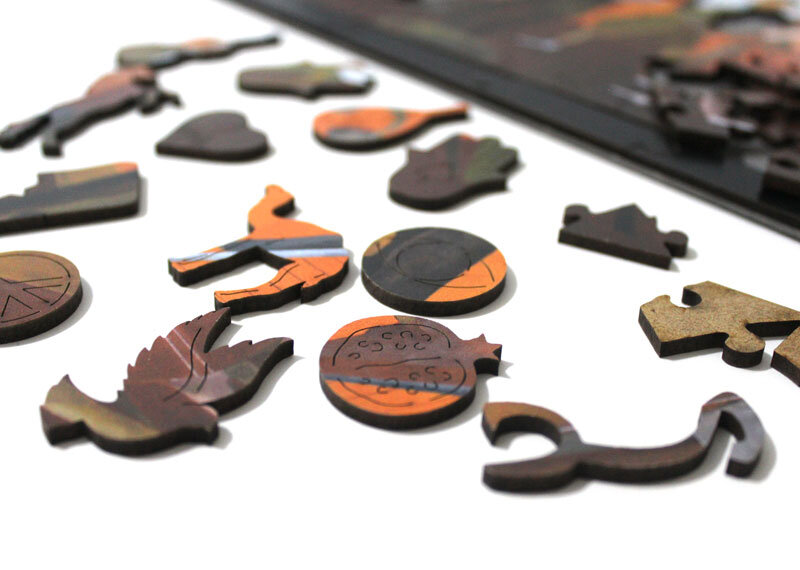
Puzzles are more than just a way to pass the time, particularly during periods of high stress. Becoming immersed in a puzzle can be like practicing a mindful meditation.
Throughout history, puzzles have been known to entertain friends and family for hours, days and weeks on end. Puzzling is also known to calm the nerves and reduce our levels of anxiety and stress. While we puzzle our breathing slows, we go inward; an opportunity to connect and regroup with our subconscious. It also allows us to recharge, leaving the fast-paced world around us for a brief while. According to Dr. Michelle McCoy Barrett, a licensed clinical psychologist, puzzles are actually considered to be a meditative project. “ Puzzles are more than just a way to pass the time," Dr. Barrett says. "Particularly during periods of high stress, becoming immersed in a puzzle can be like practicing a mindful meditation — relaxing your mind and body, decreasing stress, and even slowing your heart rate and lowering your blood pressure."
Dr. McCoy Barrett continues by referencing meditation teacher and author Lodro Rinzler's words — "mindfulness is the type where you bring your full mind to an object." With puzzles, Dr. Barrett notes that you're in the moment and focused on the task, but this particular task also hands over a sense of control.
During uncertain and stressful times, things that give you a sense of control, no matter how small, have a calming effect on the mind.

In addition to its calming effects, puzzling has also been called a ‘mind gym’ ; known to stimulate parts of the brain, improving brain function and motor skills, especially in geriatric puzzlers. Working on puzzles reinforces the connections between our brain cells and forms new ones, and are therefore a great way to improve the memory. When working on a puzzle we memorize the shapes and pieces and where they may fit. Studies have shown that the growth of new brain connections help reduce the amount of brain damage in Alzheimer patients. Puzzling also improves our problem-solving skills, since the puzzle requires us to take different approaches in solving the puzzle. This is especially true of the MID puzzle with its irregular and unusual shapes. Puzzling is also known to improve visual and spatial reasoning, as you need to be able to look at individual parts of a puzzle, and figure our how to fit the pieces into their space. If done regularly, this will improve visual and spatial reasoning skills.


